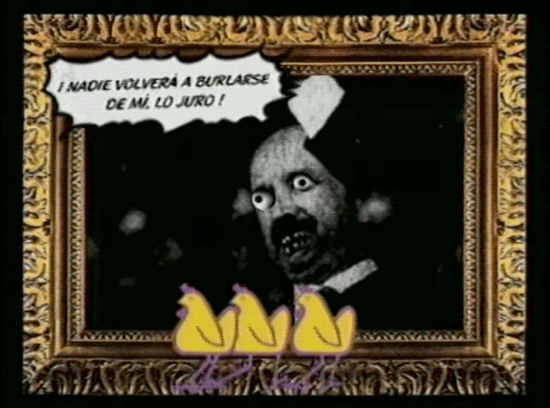If you were a pre-teen or college kid in 1997, chances are Molotov was your favorite band. Their juvenile humor, double entendres, and devil-may-care attitude established them as the voice of a generation, especially because there was more to them than just swear words and heavy riffs.
Beyond testosterones gone wild in the mosh pit, Molotov’s penchant for social commentary offered something deeper to teens opening themselves up to the world. By 1997, Mexican rock had developed its own brand of wild and aggressive charisma; it was unruly, but it had a sense of humor and a consciousness about the sociopolitical realities of the day. Molotov’s seminal 1997 album ¿Dónde Jugarán Las Niñas?, which turns 20 this August, captured these complexities with impressive and youthful irreverence, fitting squarely in the pantheon of rock mexicano. Today, ¿Dónde Jugarán Las Niñas? remains a perfect storm of controversy, incendiary political critique, toxic masculinity, and screaming and slam dancing – an album that is firmly ensconced in Mexican rock lore.
The album was released in the U.S. on August 26, 1997 after dropping on May 11 in Mexico. In the wake of its release, it was banned from several radio stations and record stores, and LGBTQ groups in Bilbao and Barcelona tried to take legal action against the band because of the album’s homophobic content.
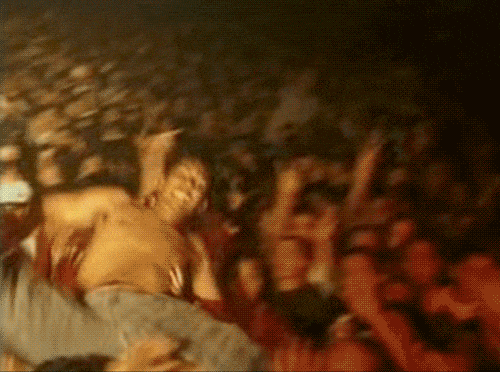
Meanwhile, Molotov were laughing all the way to the bank. Kids adored them; they packed venue after venue, and sales in the hundreds of thousands earned them several multi-platinum and gold certifications in the U.S. and Latin America. Everything was calculated to a tee, from the provocative album artwork to the corrosive lyrics. What’s most impressive is that it was only their debut album.
Today, ¿Dónde Jugarán Las Niñas? remains a perfect storm of controversy.
To say that nothing like Molotov had ever existed would be feel-good hyperbole. In many ways, Botellita De Jeréz’s self-titled debut (released in 1984) ushered in a sound and adopted themes that have become integral to Mexican rock’s DNA, evoking a unique collision of genres and embracing oddball icons of national culture. The genre was never the same; even the first big success story of the movement, Caifanes, did so with a tongue-in-cheek cover of the son cubano “La Negra Tomasa.”
In the 90s, bands like like Café Tacvba, La Maldita Vecindad, Victimas del Doctor Cerebro, and Cuca followed in Botellita’s footsteps. Molotov drew on this deep tradition, centering ingenious wordplay and catchy choruses in subversive, anti-government send-ups beloved by teens across the country. Perhaps their most impressive contribution to the nation’s rock canon, of course, is that they were one of the first acts in Mexico to take rap seriously, not just as a dance craze. They heralded a new era by incorporating hip-hop and harder-edged music into their work. In a 1997 interview with Vibe Magazine, contemporaries Plastilina Mosh even stated, “I don’t think there is a real hip-hop culture in Mexico. It’s more like a fashion thing.” Molotov aimed to change all of that.
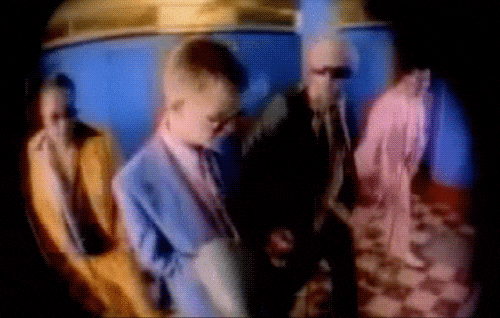
Molotov raised the bar – look no further than the notorious album artwork of ¿Dónde Jugarán Las Niñas? A faceless girl inside a car graces the album cover in a public school uniform, her underwear sitting just below her knees. Unsurprisingly, the artwork got them banned from some record stores in Mexico, so the group seized the opportunity to sell the record themselves on the streets, generating further buzz and media attention.
The provocative cover art fueled rumors of a secret government shutdown of the band, and their commitment to speaking truth to power didn’t do much to help their cause. Take “Voto Latino,” a track with lyrics focused on peace and understanding. The late 90s were a period of intense migration from Mexico to the U.S., and due to sociopolitical turmoil and severe devaluation of the Mexican peso, the growth of unauthorized immigration mushroomed into an impassioned political debate. The newly signed NAFTA agreement, which intended to abolish commercial borders between Canada, Mexico, and the U.S., ended up doing little to lift limits on human rights. The song’s Spanglish lyrics, centered on unity, spoke directly to these issues, resonating with second-generation Chicanos who loved hip-hop and rock, but also listened to rancheras and cumbias at home. The band’s use of English also helped introduce them to U.S. audiences, even as they avoided backlash from the strict tradition of Spanish-only Mexican rock.

Molotov’s politics remained somehow undefined to a fault; they raged against authoritarian paternalism, but mostly just wanted to raise a middle finger to the omnipresent “man.” “La policía te está extorsionando” are the first lyrics of their most politically-minded song, “Gimme Tha Power.” It was a sentiment that struck a chord with every teenager who was sneaking alcohol, driving without a permit, drawing graffiti, smoking weed, and skateboarding, but also who desperately wished to reclaim the country from a rotten political system.
It’s easy to lionize the band for their sociopolitical consciousness, but the misogyny of ¿Dónde Jugarán Las Niñas? is undeniable. On many of their songs, Molotov targets nameless women who cheated on them or didn’t respond to their sexual advances. “Quítate Que Ma’sturbas” is a sexist tirade against a girl who won’t please the narrator, while “Chinga Tu Madre” is a childish tantrum that oozes disdain for a partner’s mother and by the end of the song, even her. “Por qué No Te Haces Más Allá…Al Más Allá” implies a girl should kill herself because she is promiscuous. Homophobia runs wild in the latter two songs, with the male characters described as “El puto de tu hermano” and “Tu novio el mariposo.” Of course, the album’s most infamous song takes things much further.
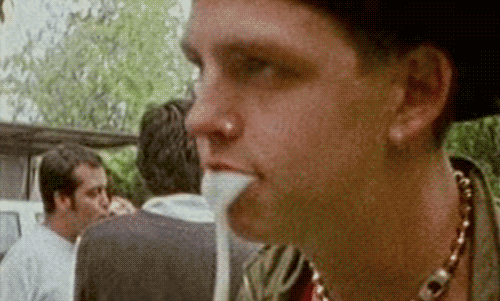
In many ways, “Puto” is the ground zero of Molotov’s controversies. It was the source of conservatives’ cries for censorship, as well as their appeal for so many. It was the song your friend urged you to listen to, because none of us believed something so wild and profane could exist. No song like this had been as heavily discussed and promoted as such an open secret, since it was extremely rare to catch on the radio or TV. In Mexico, the title remains not only a swear word, but a powerful insult. Paco Ayala still insists that the song is not an attack on gay people, which is a half-truth. It’s an attack against someone who is not man enough. It’s toxic masculinity bottled in under three minutes.
For years afterwards, the song was a cue for teens to lose their shit. It united us beyond socioeconomic boundaries, as it blasted from street corners to house parties to posh clubs. Fans still choose to defend it, while Molotov has decided to selectively censor themselves by refusing to play the song altogether on recent international tours.
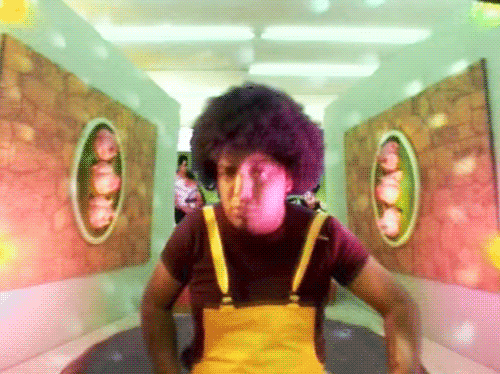
The world of 2017 is not that different from the world of 1997, with Latinos still seeking a voice in the U.S. and Mexico struggling with corrupted government officials. “Voto Latino” and “Gimme Tha Power” remain as relevant as ever. But in celebrating Molotov’s groundbreaking contribution to the Mexican rock canon, fans continue to push the album’s homophobic and misogynistic themes aside, justifying these missteps to center their more politically minded work. Molotov made their impact on a generation, and their fans likely developed a taste for politics or activism from their music. The band’s contributions are indisputable, but raising concerns about their misogynistic and homophobic rhetoric doesn’t void their influence; it helps us articulate their multiplicity, instead of falling into moral binaries.
¿Dónde Jugarán Las Niñas? remains a huge phenomenon, but it also represents a postcard of a movement stuck in time.
It’s been 20 years and the band has shown a knack for remaining powerful via pointed social commentary (“Frijolero”), downright silliness, (“Yofo”) or support for successors like De Nalgas, even if their own radically iconoclastic music didn’t fare as well. As rock’s dominance as a worldwide youth movement declines, big Mexican bands from last 15 years – like Zoé – have followed a more melodic and romantic style. While their shadow still looms large, few voices as inspiring as Molotov’s have emerged in their wake.
A few months ago, the band played ¿Dónde Jugarán Las Niñas? at Chicago’s Ruido Fest to riotous applause. This Friday, September 1, the same will happen at the 26,000-capacity Palacio De Los Deportes, where the band will play for the Mexico City stop of their 20th anniversary tour. ¿Dónde Jugarán Las Niñas? remains a huge phenomenon, but it also represents a postcard of a movement stuck in time, as much as we’d want it to move forward.
